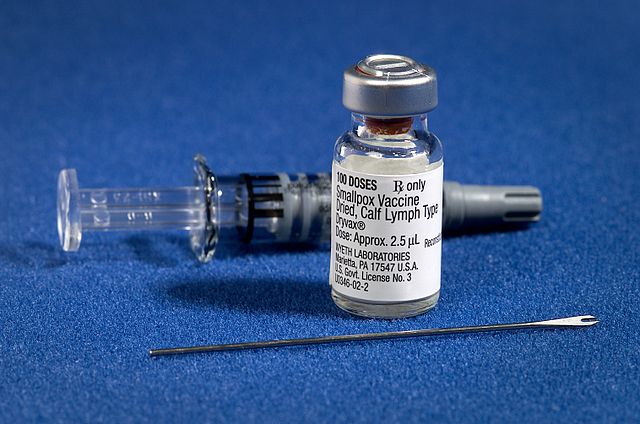
WIKIMEDIA COMMONS | Florida announced on Sept. 3 its plans to become the first U.S. state to end all vaccine mandates, including those for schoolchildren.
Florida announced Sept. 3rd that it plans to become the first state in the country to eliminate all vaccine mandates, including those required for public school students.
The decision, made by Governor Ron DeSantis and Surgeon General Joseph Ladapo, marks a significant shift in current health policies, as all 50 states previously required students to receive vaccines for diseases like measles and chickenpox before entering school. Supporters argue that the change protects liberty and personal rights, but critics argue it could lead to preventable diseases returning in schools.
Throughout Georgetown’s scientific community, the transition has brought up concerns of collective care and possible implications.
Joseph Kanjiramkuzhey (SOH ’28), a pre-medical student from Florida, said he was surprised and concerned by Florida’s decision to make the change.
“At first, I was shocked. I did not know how to feel because, back home, everyone understood the importance of vaccines and how crucial they are.” Kanjiramkuzhey wrote to The Hoya. “Vaccines have been tested, proven effective and have even eradicated diseases from the human population. For that reason, removing the vaccine mandate felt like a drastic decision.”
Florida already banned COVID-19 vaccine requirements for students in November 2021, but prior to Santos’s announcement, it still required students to have immunization forms for common childhood illnesses. While many states have exemptions for religious or personal reasons, Florida would be the first state to eliminate all vaccine requirements.
Emily Mendenhall, a medical anthropologist and director in Georgetown’s science, technology and international affairs program, said Florida’s move reflects a cultural shift away from collective care.
“Public health is all about caring for people and creating policy that protects the most vulnerable among us,” Mendenhall told The Hoya. “The culture has shifted towards prioritizing individualism over protecting children, the elderly and those who cannot be vaccinated.”
Herd immunity is the principle that when enough people in a community are immunized, it reduces the spread of disease and creates protection for those who cannot receive vaccines themselves. Without vaccine coverage, these populations face greater risk of infection.
Mendenhall added that she was not surprised by the mandate elimination, but expressed frustration over potential implications for Floridian families.
“I’m disappointed because I have friends and family in Florida with kids with disabilities, and they are really scared to send their kids to school,” Mendenhall said. “A lot of this anti-vaccine work tells us more about culture and politics than it does about health.”
Charlotte Park (CAS ’27), who studies biology of global health, said she has similar concerns, pointing to how the change reflects the larger debate of balancing freedom and public health.
“In my global health classes, we’ve discussed vaccine mandates and the tension between individual freedom and the common good,” Park told The Hoya. “The end of Florida’s vaccine mandate is very concerning and goes against longstanding public health recommendations.”
Mendenhall said Florida’s decision is only one example of the growing hostility toward public health workers.
“The threat to public health is not only just intellectual, but it’s visible and violent,” Mendenhall said. “This vaccine mandate in Florida is just the most obvious thing.”
Mendenhall said the change is unlikely to directly affect Georgetown students in the short term; however, it could contribute to long-term risks if the change spurs a movement toward vaccination decline nationwide.
“You can still vaccinate your children, but it means those who don’t have that choice will be less protected. That’s the whole idea of a vaccine–– herd immunity protects the vulnerable,” Mendenhall said.
Kanjiramkuzhey said the Florida decision underscores the necessity of high-level, or R1, research universities in promoting accurate, science-based information about health policy.
“This situation highlights the importance of science and technology,” Kanjiramkuzhey said. “As an R1 institution, our responsibility is to share reliable information so that people understand how essential it is to get vaccinated.”